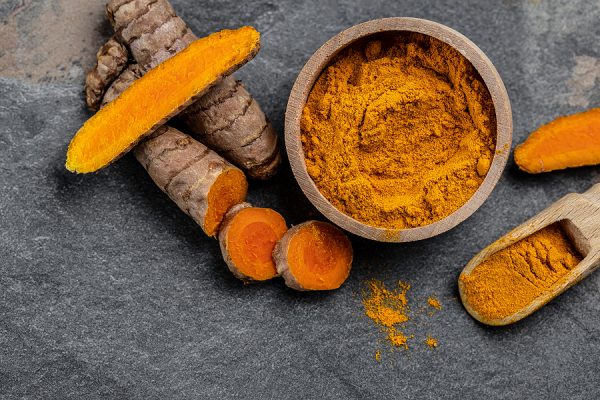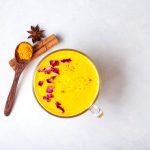By David Blyweiss, M.D., Advanced Natural Wellness
Ancient medicine had so many things right!
Long before we had antibiotics, antacids, pain relievers and a drug for every ailment, plants were our number one form of medicine. They were used to treat anything and everything.
Only recently are we rediscovering the healing power of herbs, spices and plant extracts that were used medicinally thousands of years ago. And we are finding some real gems when it comes to the incredible effect some of these medicinal plants have on our health.
One of the most promising is a traditional Indian spice that dates back nearly 4000 years. Back in the day, the ancient Indian medical community used it for all sorts of ailments – eye infections, respiratory problems, wound healing, ulcers and more.
Today, we’re learning that this miracle spice can even tackle some of today’s most devastating health issues.
The Medicinal Spice that Adds Life
Some people call it the “golden spice.” It is also known as “Indian saffron” and “the spice of life.” You probably know it as turmeric, the spice that gives curry it’s brilliant yellow color,
The wonderful thing about turmeric is that it contains a powerful antioxidant called curcumin. This compound has been researched extensively. And it has been shown to ward off all sorts of health problems associated with aging.
One of the most exciting things about the curcumin found in turmeric is that it is an extremely potent anti-inflammatory. So it’s great for treating inflammatory diseases like arthritis, diabetes, cardiovascular disease, non-alcoholic fatty liver and Alzheimer’s.
What Can Turmeric do for You?
Turmeric can help with so many of today’s chronic health issues that it’s too bad it took us so long to “rediscover” the benefits of this amazing spice. It can help with…
Pain and inflammation. When it comes to pain management curcumin shuts down inflammation by blocking enzymes that produce pain. And it works just as well as NSAID pain relievers when it comes to decreasing pain and improving function in arthritis – without the dangerous heart attack and stroke risk associated with NSAIDs.
Diabetes. The curcumin in turmeric helps improve the function of the pancreatic beta cells – the cells that make insulin. So it also has a favorable effect on insulin resistance and blood sugar; and helps prevent diabetic complications. When pre-diabetic patients took a curcumin supplement for nine months, none of them progressed to a full-fledged diabetes diagnosis.
Vascular health. Curcumin leads to improvements in endothelial function. When you have endothelial dysfunction, the inner linings of blood vessels lose much of their ability to manage the traffic of critical blood flow to and from the heart. This is a critical warning sign of heart disease that could result in a heart attack.
But here is something very interesting. Curcumin’s effect on counteracting endothelial dysfunction is comparable to the cholesterol-lowering drug atorvastatin. And unlike statin drugs such as atorvastatin, curcumin won’t rob your body of heart-healthy CoQ10 or increase your risk of diabetes.
Non-alcoholic fatty liver disease (NAFLD). When your liver enzymes – like ALT and AST – go up, it’s a sure sign of liver problems. In fact, increased levels of these enzymes are often the only sign of non-alcoholic fatty liver disease until it enters the later stages.
When people with NAFLD took a turmeric extract for eight weeks, their levels of ALT and AST were reduced, which indicates an improvement in liver function.
Alzheimer’s Disease. It turns out that curcumin could have some pretty wholesome effects on the brain. It works by helping clear out the amyloid plaques that are common in Alzheimer’s disease. It also reduces oxidation, inflammation and clears out heavy metals like cadmium and lead – all of which contribute to Alzheimer’s and dementia.
So you can see that the curcumin in turmeric is a pretty potent form of natural medicine.
The only problem is that curcumin, by itself, isn’t readily absorbed by the body. But if you combine it with black pepper, it increases absorption dramatically.
I enjoy eating traditional Indian curries, but I also like adding turmeric to other meals. I sauté fresh turmeric with veggies, put it in casseroles and add it to soups and stews. Or, for a greater punch, you can look for a curcumin supplement that also includes biperine, a black pepper extract that substantially increases its bioavailability. The formula should also be standardized to 90 to 95 percent total curcuminoids.
SOURCES:
Hewlings SJ, Kalman DS. Curcumin: A Review of Its Effects on Human Health. Foods. 2017;6(10):92.
Peng Y, Ao M, Dong B, et al. Anti-Inflammatory Effects of Curcumin in the Inflammatory Diseases: Status, Limitations and Countermeasures. Drug Des Devel Ther. 2021;15:4503-4525.
Kuptniratsaikul V, Dajpratham P, Taechaarpornkul W, Buntragulpoontawee M, Lukkanapichonchut P, Chootip C, Saengsuwan J, Tantayakom K, Laongpech S. Efficacy and safety of Curcuma domestica extracts compared with ibuprofen in patients with knee osteoarthritis: a multicenter study. Clin Interv Aging. 2014 Mar 20;9:451-8.
Chuengsamarn S, Rattanamongkolgul S, Luechapudiporn R, Phisalaphong C, Jirawatnotai S. Curcumin extract for prevention of type 2 diabetes. Diabetes Care. 2012;35(11):2121-2127.
Zhang DW, Fu M, Gao SH, Liu JL. Curcumin and diabetes: a systematic review. Evid Based Complement Alternat Med. 2013;2013:636053.
Peng Y, Ao M, Dong B, et al. Anti-Inflammatory Effects of Curcumin in the Inflammatory Diseases: Status, Limitations and Countermeasures. Drug Des Devel Ther. 2021;15:4503-4525.
Usharani P, Mateen AA, Naidu MU, Raju YS, Chandra N. Effect of NCB-02, atorvastatin and placebo on endothelial function, oxidative stress and inflammatory markers in patients with type 2 diabetes mellitus: a randomized, parallel-group, placebo-controlled, 8-week study. Drugs R D. 2008;9(4):243-50.
Jarhahzadeh M, Alavinejad P, Farsi F, Husain D, Rezazadeh A. The effect of turmeric on lipid profile, malondialdehyde, liver echogenicity and enzymes among patients with nonalcoholic fatty liver disease: a randomized double blind clinical trial. Diabetol Metab Syndr. 2021 Oct 18;13(1):112.
Mishra S, Palanivelu K. The effect of curcumin (turmeric) on Alzheimer’s disease: An overview. Ann Indian Acad Neurol. 2008 Jan;11(1):13-9.



